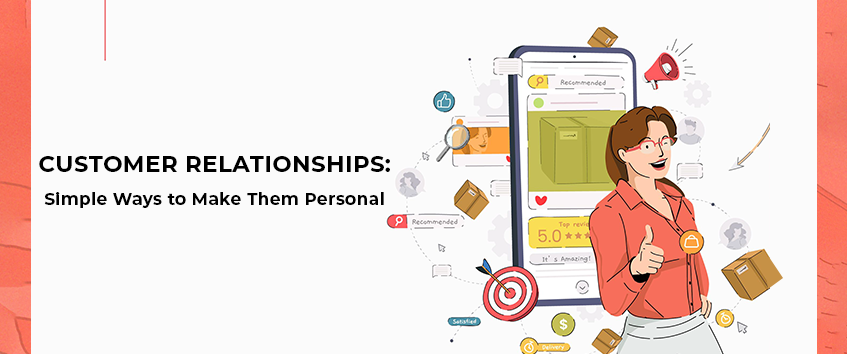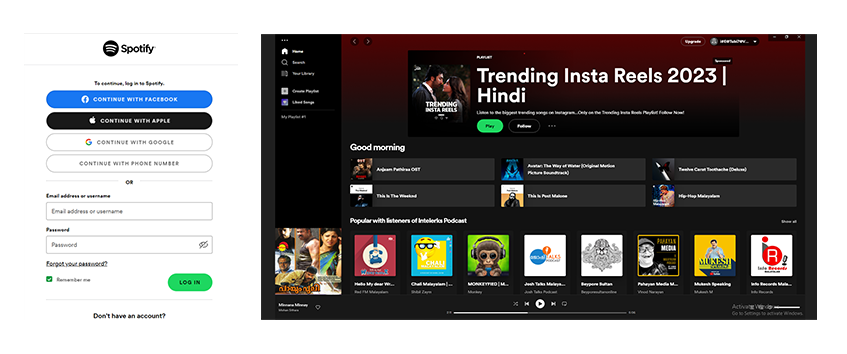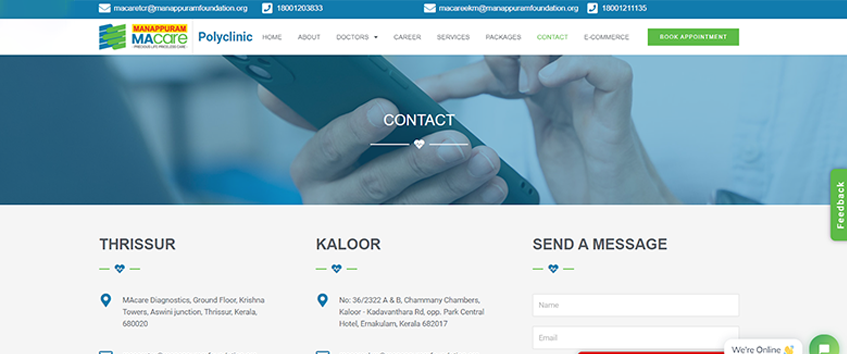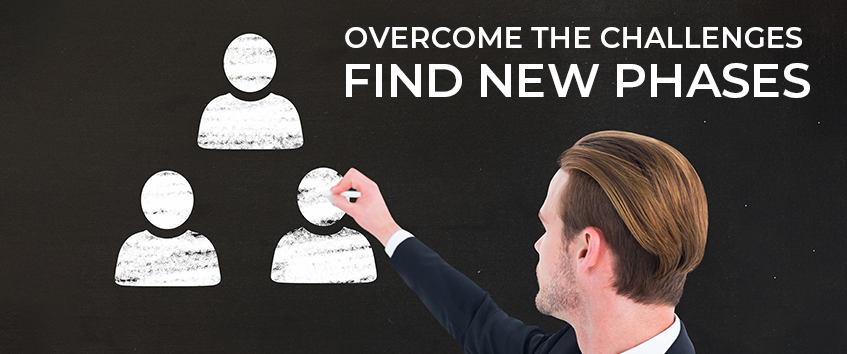Personalized Marketing: The Power of Targeted Marketing
April 14, 2023
In order to stand out in the increasingly competitive world of digital marketing, businesses must go above and beyond fulfilling basic client expectations. We can accomplish that through personalized marketing.
Using information about a consumer’s interests, activities, or demographics, a marketing approach known as “personalized marketing” can be used to adapt offers, communications, or content to a specific customer. Businesses may use it to enhance engagement, conversion rates, and customer loyalty. It’s a potent approach to interacting with customers more personally.
Today’s statistics, however, are more sophisticated, allowing business owners and marketers to selectively choose the people they want to reach with their campaigns, newsletters, and advertisements. Normally the best Practices for Personalized Marketing are:-
- Leverage social media
- Take advantage of email marketing
- Look for personalization tools
- Continually review data
- Create meaningful & attractive lead forms
Nowadays modern technologies give businesses new ways to improve and personalize their customers’ experiences. In this blog, we’ll take a closer look at personalized marketing and its benefits, challenges, its best practices, and examples of its successful implementation.

Benefits of Personalized Marketing
Personalized marketing can offer several benefits for businesses:
Improved Customer Engagement: Personalized marketing allows businesses to create content and messaging that speaks directly to each customer’s interests and needs. This can increase customer engagement and build stronger relationships.
Customer retention: Consumers desire marketing communications and promotions that are pertinent to their needs and interests. A corporation can continue to customize messages for its users and provide them with pertinent content if it maintains up-to-date information about them.
Higher Conversion Rates: By providing personalized offers and messaging, businesses can increase the likelihood of customers making a purchase or taking a desired action.
Increased Customer Loyalty: When customers feel understood and appreciated, they are more likely to return to a business and become brand advocates.

Customers today seek genuine connections with brands that make them feel valued individuals. It’s not enough to be nice to them; they expect our company to understand their needs and provide the products and services they want. So we should follow these things:-
Use a tone that corresponds to the customer’s personality
Knowing how to communicate with customers is critical for personalizing business relationships. A customer who prefers short and direct communication, for example, has a different personality than one who enjoys longer conversations and sharing opinions. With a little effort, our brand can learn about customer’s personalities, take notes, and ensure that our agents speak to them in a tone that puts them at ease.
Customers are assigned to agents who have the necessary skills
Make an effort to match customers to agents with the most appropriate skills once our brand is aware of our customer’s personality types. While agents are trained to work with customers of all temperaments, some agents may be better qualified than others to handle customers of particularly complex cases that cause anxiety or frustration.
Inquire about their preferences
Listen to our customer’s needs to empower them. Inquire about how they prefer to be addressed, and ensure that agents always use their preferred names. Take note of their preferred communication channels and use them for all communications. When it comes to marketing offers, give customers the option of choosing the time and frequency of these communications, as well as the ability to opt out at any time. Enquiring about our customer’s preferences both personalized the experience and increased their trust in our brand.
Learn about their backgrounds and engage in genuine conversations
Understanding our customer’s backgrounds allows us to personalize each interaction. Is our customer frequently mentioning children? Have they recently relocated to a different city? Instead of asking personal questions that customers may find intrusive, pay close attention to the details they willingly share and incorporate them into conversations. Asking a customer how his children are doing or welcoming him to a new home may immediately make him feel valued as a person by our brand.
 Make thoughtful and unexpected moves
Make thoughtful and unexpected moves
An excellent technique to individualize our consumer relations is to express our thanks in the name of our brand. For instance, our business may thank clients and offer more support if necessary through follow-up communications sent to them after each purchase or service engagement. In addition to loyalty programmes and marketing initiatives, it’s a good idea to send birthday greetings and gifts to customers. Furthermore, keep in mind that proactive actions that save customers time and effort are always appreciated; if your company has the ability to share any crucial information before the client asks for it, be sure to do so.
Make customized content
Our business may start by simply proposing goods or services that customers would enjoy based on their past purchases as a way to develop tailored content. Also, we might think about tailoring the promotions that customers see when they access our business website or mobile app or publishing blog or video material on customers preferred channels. Customers today may feel overwhelmed by the abundance of options and give up on brands if they’re dissatisfied. Because of this, businesses who genuinely work to develop connections with their customers are the ones that gain their trust and loyalty. Then our brand will stand out and will establish genuine relationships with them.
Best Practices for Personalized Marketing
To be effective, personalized marketing should follow some best practices, including:
Accurate and Up-to-Date Customer Data: Personalized marketing is only effective if it works based on accurate and up-to-date customer data. Businesses should ensure that they have a clear data collection and management strategy in place.
Relevant and Useful Messaging: Personalized marketing should provide customers with messaging that is relevant and useful to them. It should be tailored to their needs and interests, and offer solutions to their problems.
Transparency and Choice: Businesses should be transparent about their data collection and use, and give customers the option to opt-out of personalized marketing.
Examples of Personalized Marketing
There are several successful examples of personalized marketing (business, entertainment, education, Healthcare) including,:-
Amazon

Amazon’s product recommendations are a great example of personalized marketing. The company uses customer data to suggest products that customers may be interested in based on their previous purchases and browsing history. Companies use this information to suggest goods that they are confident will be bought by their clients. They also frame Sign in tabs with attractive quotes for collecting more information about the customers. During the holidays, they frequently intensify this technique as they perfect their algorithmic matching of consumer requirements and desires.
Spotify
Spotify’s personalized playlists use customer data to create unique playlists based on a customer’s listening history and preferences.

BYJU’S-The Learning App
BYJU’S-The Learning App is every student’s favorite learning companion using personalized content recommendations. This comprehensive learning programs & classes for all students for making them lifelong learners with India’s best teachers, engaging video lessons and personalized learning journeys.

MAcare polyclinic
In the healthcare industry, personalized marketing can aid in establishing consistent user experiences across a number of channels. For instance, every interaction a user has with you through email, social media, or a mobile app should be comparable. Also, these exchanges ought to complement your shopping experience.

In the healthcare industry, personalized marketing can aid in establishing consistent user experiences across a number of channels. For instance, every interaction a user has with you through email, social media, or a mobile app should be comparable. Also, these exchanges ought to complement your shopping experience.
Challenges of personalized marketing
As businesses use tailored marketing methods, they also confront difficulties with client data. Issues include:
Starting Up Obstacles
In order to personalize customer interactions, many businesses don’t know where to begin.
Even if we have a solid grasp of what customization is and how it operates, knowing how to put it into practice might be challenging.The fact that there are so many diverse approaches to enhancing the customer experience just makes this task more difficult.
Silos of data.
Teams may manage data in many locations inside the firm. When a firm has a lot of customer data, it may be difficult to get it all together so that all teams can access it and see the customer from every angle. Businesses should employ technology, such as a customer data platform, to synchronize data across departments and stop misunderstandings. It is not a good interaction when the sales and marketing teams send the identical advertisement to a customer twice.
Measurement Challenges
Our personalization efforts can be measured to assist us to identify what is effective and what needs to be improved. But it can also be difficult to measure metrics, particularly when working with the vast amount of data that is currently available.
We will be able to customize our content more effectively and boost the effectiveness of our entire organization if we take the time to measure our outcomes attentively.

Provide sufficient resources
Companies need to have the personnel, resources, and time necessary to create an efficient tailored marketing plan. Automation can significantly cut the time and labor expenses associated with customisation, but people still need to be involved in the overall plan.
Planning, focusing, and monitoring are required for personalized marketing. The technical details of data aggregation can be handled, but we still need to decide what data is important to us and how to use it. When gathering data and sending out customized communications, we must be aware of how open our clients are to provide their personal information.
Ethics and Responsibility
Companies must be cautious when using customer data in an ethical and responsible way. Companies must seek customer consent before utilizing customers data for marketing reasons and be open and honest about their data collecting and usage practices.
How Crucial is Personalized Marketing?
Every industry is experiencing an increase in competition, and businesses are finding it difficult to differentiate themselves. Marketers know there is only one steadfast truth: Everyone wants to enjoy a pleasurable experience in shopping. This is true despite the fact that the marketing environment is continuously shifting, trends come and go, and new platforms are appearing.
This is why personalization in business has increased over the past ten years; more than 90% of clients and marketing experts rated it as extremely significant. Customers expect to be pleased with all facets of our business, whether it be marketing, product development, or customer service. To earn their trust and develop a devoted following of customers who will keep purchasing from us, brands need to carefully consider what their target audience is interested in. The rest will fall into place if we are straightforward, open, and honest with our customers.
Future Trends in Personalized Marketing
As technology continues to evolve, personalized marketing is likely to become even more advanced. Some future trends in personalized marketing include:
1. Artificial intelligence (AI): AI-powered computers are able to evaluate customer data to develop highly focused marketing campaigns that customize messaging, product recommendations, and user experiences. We may anticipate more complex and precise personalisation in marketing as AI technology develops.
2. Hyper-customization: Using cutting-edge data analytics, hyper-personalization goes beyond simple personalization to dynamically tailor content, user experiences, and product suggestions. The process of hyper-personalization entails gathering and examining data from a variety of sources, including social media, browsing habits, past purchases, and geography.
3. Voice and visual search: As voice assistants and visual search technology become more widely used, tailored marketing strategies will need to change to accommodate these new tools. To help customers find what they’re looking for, brands will need to tailor their content and product recommendations for voice and visual search.

4. Data privacy and consent: As more customer data is gathered, the demand for transparency around data privacy and permission will increase. Companies that put a high priority on data privacy and foster consumer loyalty will succeed in their efforts at targeted advertising.
5. Augmented Reality: Customers can interact with products in real-time using augmented reality (AR) technology, creating a personalized and engaging buying experience. Companies may employ augmented reality (AR) technology to highlight their goods and customize customers’ shopping experiences.
6. Personalized pricing: Pricing based on individual consumer information, such as purchase history, geography, and browsing habits, is known as personalized pricing. Brands may boost sales and consumer loyalty by offering personalized pricing.
7. Omnichannel marketing: Providing a fluid and uniform consumer experience across all channels, such as social media, email, mobile apps, and in-store, is known as omnichannel marketing. To offer clients a personalized experience across all touchpoints, personalized marketing tactics will need to adapt to omnichannel marketing.
ALWAYS BUILD TRUST & MOVE ALONG WITH TECHNOLOGY, THAT WILL RETAIN YOUR BRAND’S LOYALTY
In conclusion, personalized marketing is a powerful strategy that can help businesses increase engagement, conversion rates, and customer loyalty. By following best practices and using the right tools and technologies, businesses can create personalized messaging and offers that resonate with their customers and drive results. Just move along with Monolith to be trending in personalized marketing.
